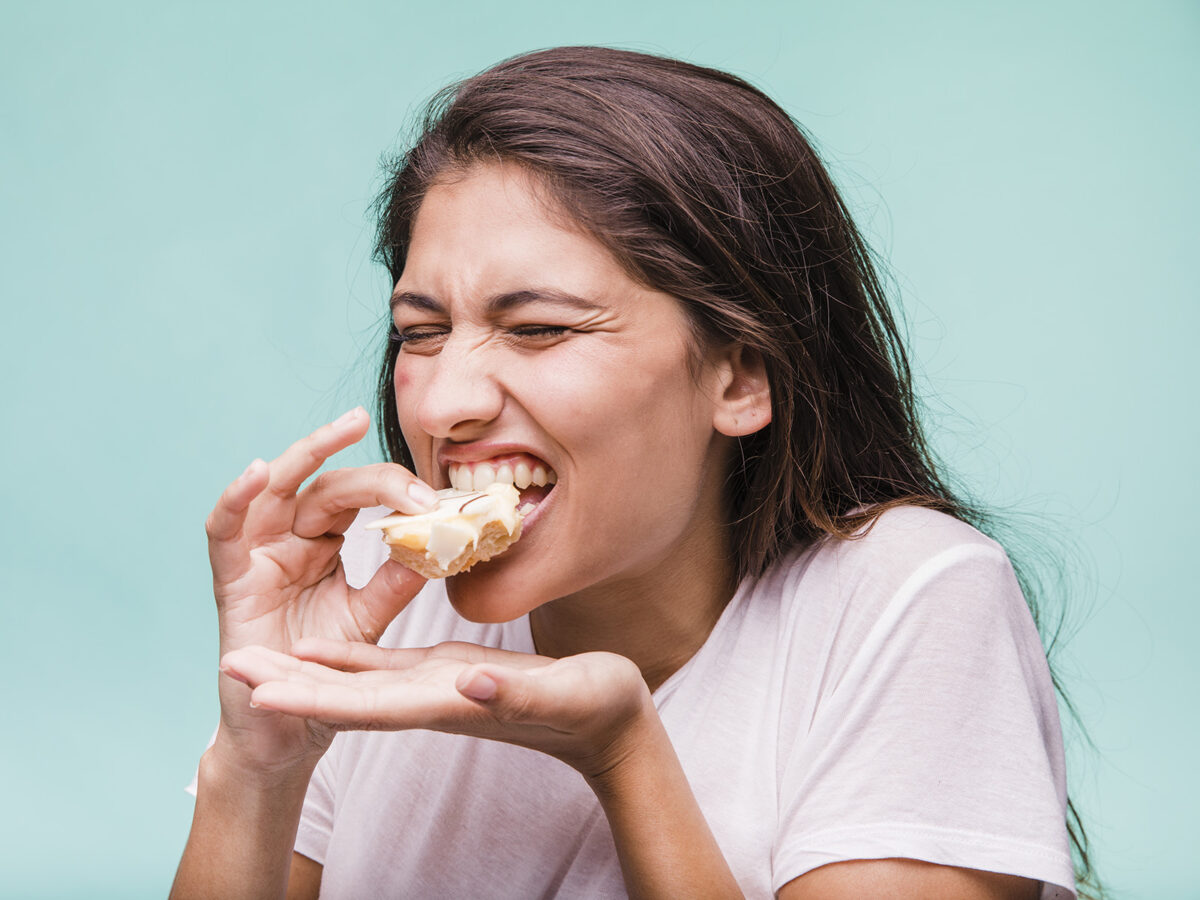Blog
Dental hygiene tips for healthy teeth & gums

What Foods Can’t You Eat With Veneers?
Veneers are a popular dental solution for enhancing smiles, but taking care of them is essential to maintain longevity. Certain foods can potentially damage or stain veneers, compromising their appearance. In this article, we will discuss the foods you should avoid to protect your veneers and keep them looking their best
What Foods Should You Avoid With Veneers?
Hard and Crunchy Foods
It is important to note that veneers are designed to be durable, but excessive force can still damage them. It is best to avoid biting into hard and crunchy foods, such as ice, hard candies, popcorn kernels, and nuts. These foods can exert too much pressure on your veneers, potentially causing them to chip, crack, or come loose. Opt for softer alternatives or cut these foods into smaller, more manageable pieces before consuming them.
Sticky and Chewy Foods
Sticky and chewy foods tend to get stuck to the surface of veneers, leading to potential damage or discoloration. Avoid foods like caramel, taffy, chewing gum, and sticky candies that can pull or dislodge the veneers. These items can also contribute to plaque accumulation and increase the risk of cavities. Choose healthier snacks that are less likely to stick to your teeth, such as fruits or yogurt.
Staining Agents
Although veneers are stain-resistant, they are not entirely impervious to discoloration over time. Certain foods and beverages contain intense pigments that can stain veneers, affecting their natural-looking appearance. Coffee, tea, red wine, berries, tomato sauce, and dark-colored sodas are common staining agents to avoid. Using a straw can help minimize contact with your veneers if you consume these beverages. Additionally, brushing your teeth or rinsing your mouth with water after consumption can reduce the risk of staining.
Acidic Foods and Beverages
Acidic foods and drinks can erode the protective enamel layer of your teeth, including the veneers. Citrus fruits, vinegar-based dressings, carbonated beverages, and citrus-flavored drinks fall into this category. Acidic substances weaken the tooth structure, making them more susceptible to damage. Avoid prolonged exposure to these foods and drinks, and if consumed, rinse your mouth with water afterward to neutralize the acidity.
Seeds and Pits
Foods like popcorn, sunflower seeds, and olive pits can pose a risk to your veneers. These items’ small and hard nature can lead to veneer damage or dislodgement. Be cautious when consuming items with seeds or pits, or remove them before eating.
Highly Pigmented Sauces
Sauces like soy sauce, balsamic vinegar, and dark-colored condiments can stain veneers over time. If possible, limit your consumption of these highly pigmented sauces, or be sure to rinse your mouth with water afterward to minimize the chance of staining.
What Foods Can You Eat?
Here are some items you can consume if you wear veneers:
- Soft-cooked vegetables (e.g., steamed broccoli, carrots, or cauliflower)
- Lean proteins (e.g., grilled chicken, fish, or tofu)
- Soft fruits (e.g., bananas, berries, or sliced apples)
- Cooked grains (e.g., rice, quinoa, or couscous)
- Dairy products (e.g., yogurt, cheese, or milk)
- Soft bread (e.g., sandwich bread, tortillas, or wraps)
- Butter (e.g., peanut butter or almond butter)
- Smoothies or blended fruits and vegetables
- Soft pasta dishes (e.g., spaghetti with a smooth sauce)
- Soups (e.g., vegetable soup or pureed soups)
Conclusion
To ensure the longevity and aesthetics of your veneers, it’s crucial to make wise food choices. Avoid hard, crunchy, sticky, and chewy foods that can damage or dislodge veneers. Steer clear of staining agents and acidic foods that can compromise their appearance. By following these guidelines, you can maintain a beautiful smile and protect your investment in veneers.


